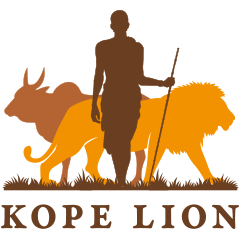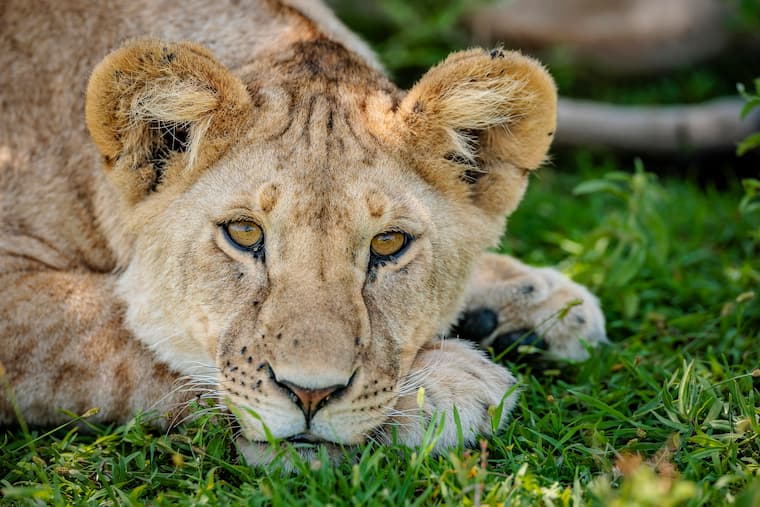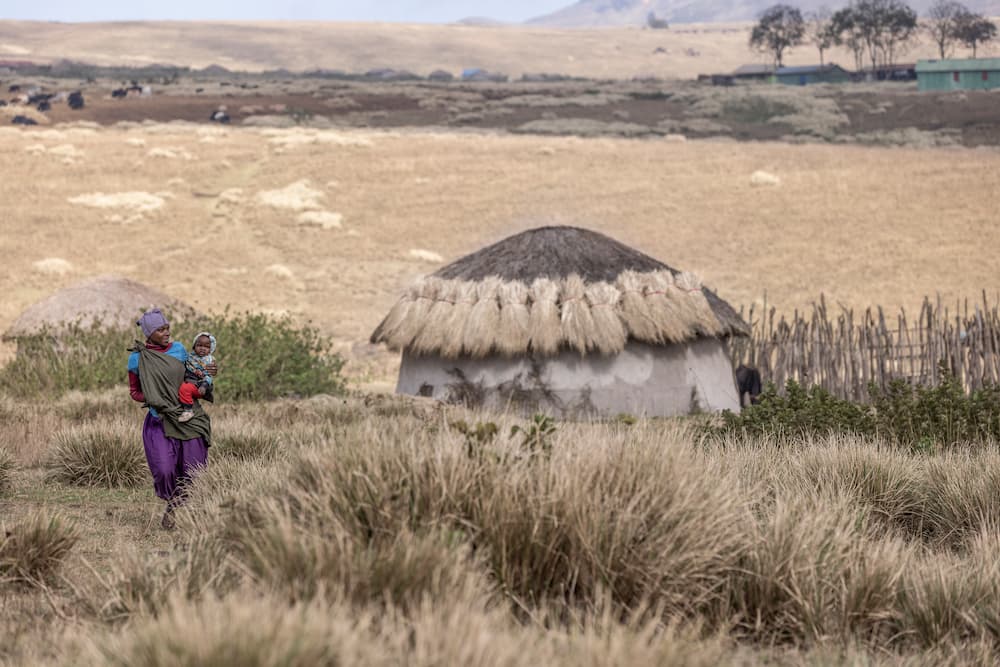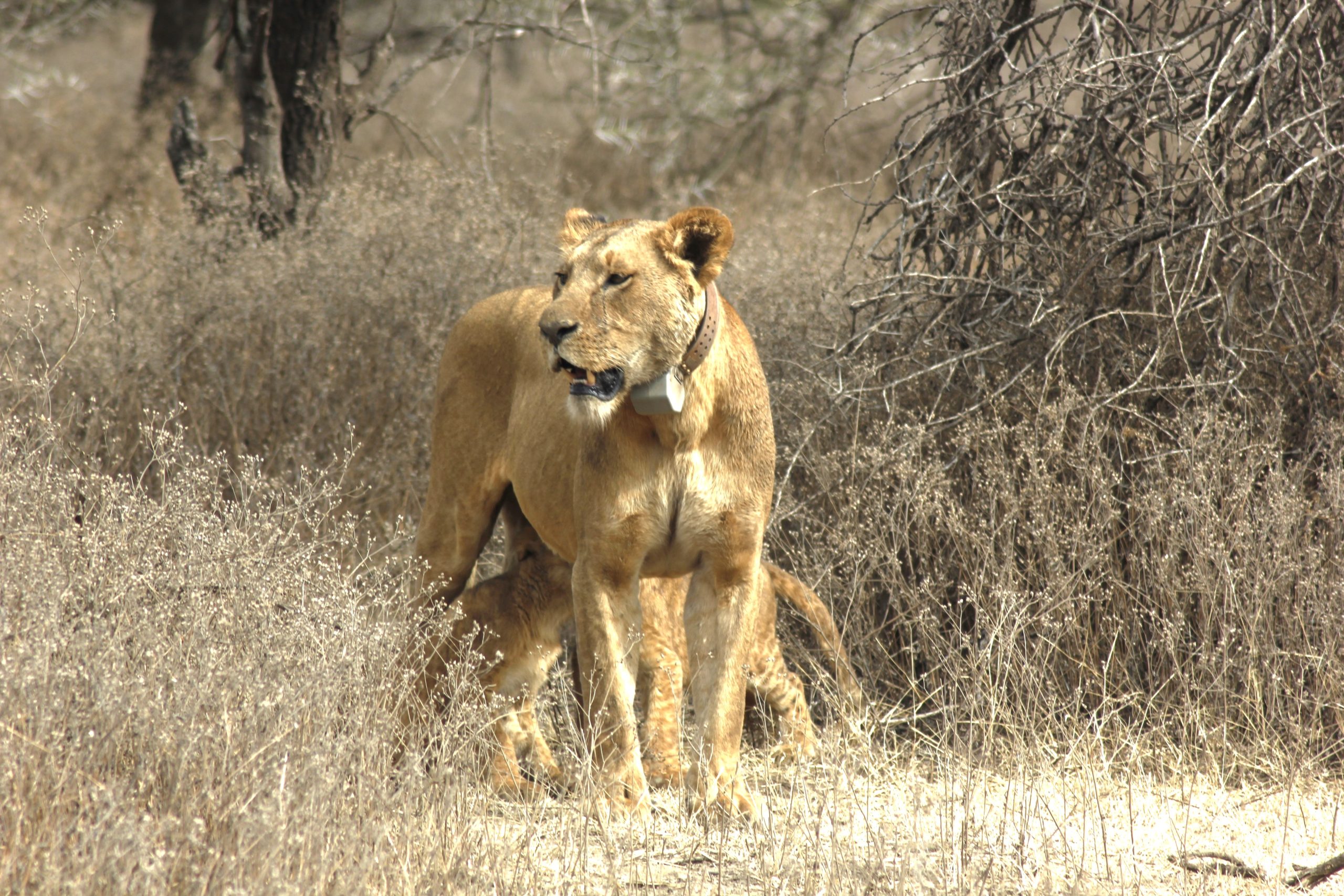
Despite facing unforeseen and significant challenges in 2021 and 2022, KopeLion’s efforts in Ngorongoro have successfully maintained the lion population in the conservation area with many cubs surviving in Ndutu this year.
The prolonged drought, along with an increased influx of pastoralists into the dry season grazing area due to the closure of access to water sources in the newly annexed Pololeti Game Controlled Area, presented significant hurdles. The increase in invasive species and a decline in grasslands has a direct impact on the local community’s livelihoods, prompting pastoralists to shift towards favoring sheep and goats over cattle in the dry season grasslands. These changes have exacerbated conflicts, thwarting KopeLion’s efforts, and increased the occurrence of lion attacks on livestock.

Lions that established themselves in a community-occupied area on the edge of the crater in 2020 continued to multiply and attacked numerous livestock in 2021. Since 2023, they no longer reside here, having possibly overstayed their welcome. Despite these challenges, the community’s tolerance toward lions has remained high and the sanctions on traditional killings of lions have been maintained. By the end of 2023, efforts by KopeLion resulted in a reduction in the number of lions killed compared to the levels seen in 2020.
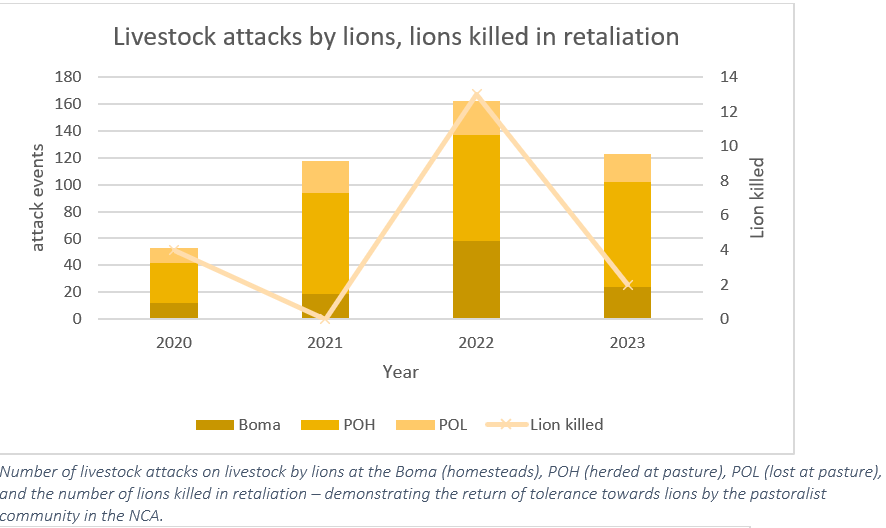
IUCN Save Our Species, co-funded by the European Union, have supported us to establish a second corridor of tolerance for lions in Kakesio, linking the Ngorongoro highlands to the Makao Wildlife Management Area and the Maswa Game Reserve lion habitats and working with the communities who share this habitat.
KopeLion’s three new Ilchokuti zones in Kakesio increased our area of work by 304 sq.km and has allowed us to collect data and establish a baseline on the presence of lion in this area and their attacks on livestock, as well as to provide vital support to the pastoralist communities living here. Building people’s ability to tolerate lions increases the likelihood of their safe passage through the area and continued connectivity to the meta population of lions.
Over the course of our two-year IUCN grant, KopeLion has forged a close partnership with the Ngorongoro community, establishing trust and solidifying our relationship. Our commitment to assisting them in coexisting with lions has seen various approaches. Although the idea of painting eyespots on cow’s buttocks to deter lion attacks proved unpopular among pastoralists, the construction of 20 robust livestock enclosures was met with high demand. This initiative not only continues successfully but has also attracted additional funding support.
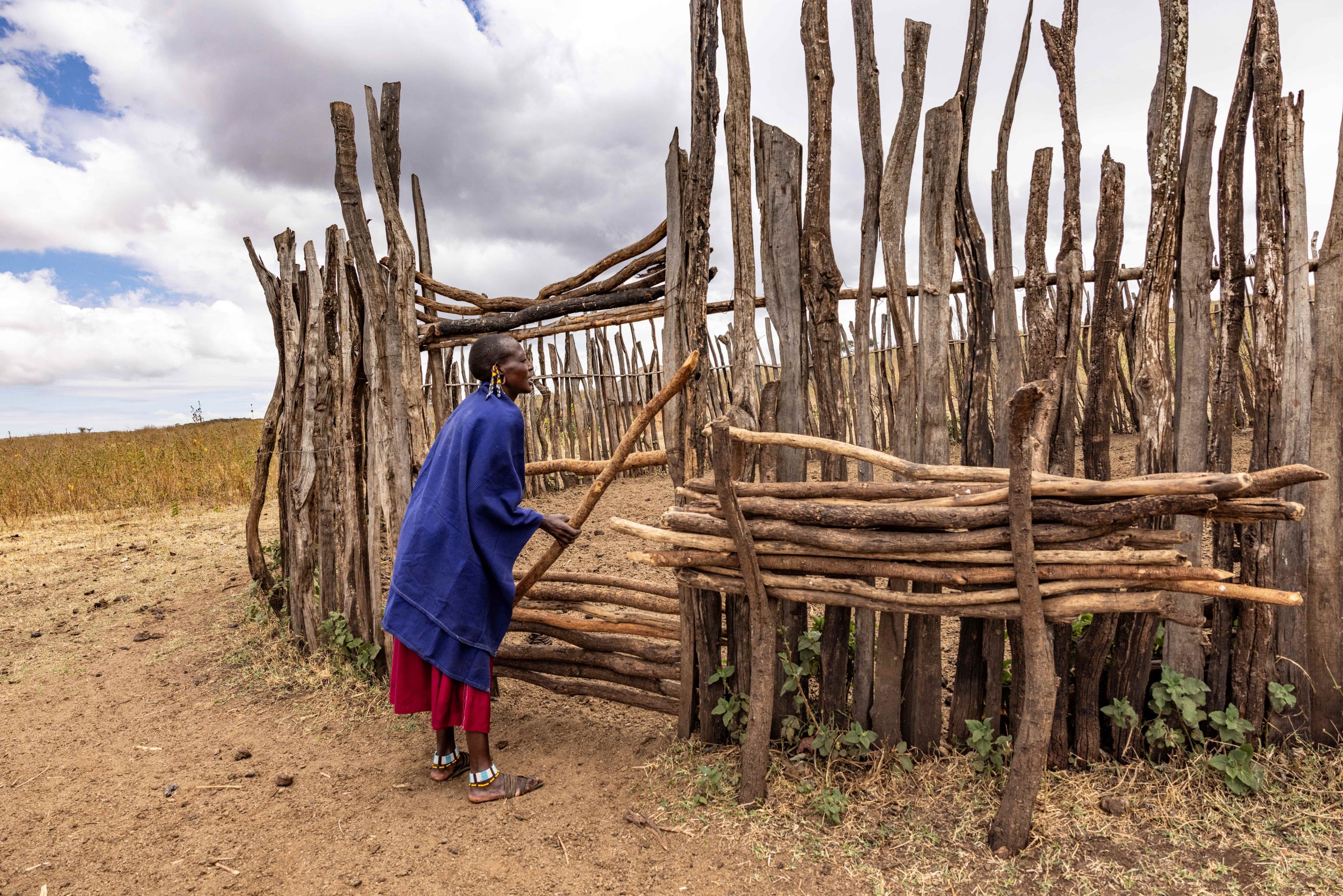
Our dedicated team of 30 Ilchokuti, responsible for safeguarding people, livestock, and lions, has played a crucial role in supporting Ngorongoro’s livelihoods throughout the two-year project. They have been enabled to provide assistance through utilising the skills learned through training, and the provision of basic veterinary supplies. The recovery of 87% of lost livestock, totaling 7,816 animals with a value of $626,630, and the treatment of 2,086 animals for wounds inflicted by predator attacks reflect the impactful outcomes of their efforts. Ilchokuti members also contribute to repairing livestock enclosures breached by predators, attending every lion attack event, and meticulously recording lion observations and other wildlife activities in their areas.
KopeLion’s recent engagement with secondary schools in Ngorongoro, including day trips for 200 students into the crater, has led to the initiation of a new project in 2024 collaborating with primary schools and their conservation clubs. Through our trial program, which pays for the presence of lions in six villages, we’ve supported students by providing secondary school supplies and primary school food programs, amounting to approximately $35,000.
While acknowledging the challenges of coexisting with lions and the unpredictable nature of the environment, through the support from IUCN’s Save our Species grant, we observe a positive shift in community attitudes towards lions, as their needs are better understood and supported.
With the support of IUCN Save Our Species, co-funded by the European Union
